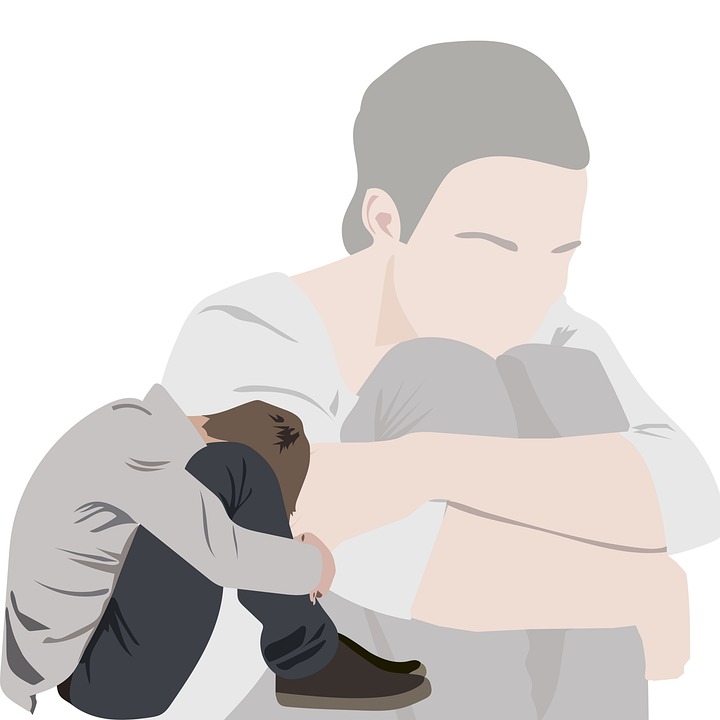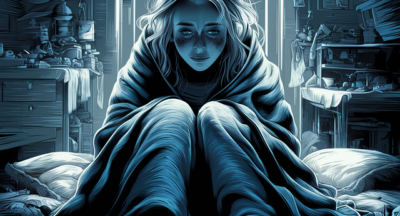
Complexities of S.A.D (Seasonal Affective Disorders): Coping with mood disorders related to winters and cold temperatures. Effective Strategies that can work during these long winter months to alleviate these moods.
Seasonal Affective Disorder (SAD) is a type of mood disorder that recurs seasonally, often in winter when daylight hours are reduced. The symptoms of SAD are similar to those of major depressive disorder and may include persistent low mood, fatigue, irritability, sleep problems, overeating, and social withdrawal. Those affected by SAD can find it difficult to maintain motivation and experience a general decline in well-being.
Here’s a detailed exploration of SAD, the science behind it, and effective strategies for coping during the winter months.
1. Understanding SAD: Causes and Biological Mechanisms
- Light and Melatonin Regulation: Reduced sunlight in winter affects our circadian rhythms, which are regulated by light. This can lead to overproduction of melatonin, the hormone that regulates sleep, causing drowsiness and lethargy during waking hours.
- Serotonin Production: Low sunlight exposure may lower serotonin levels in the brain. This neurotransmitter is crucial for mood stabilization, and lower levels can lead to feelings of depression and lethargy.
- Vitamin D Deficiency: Sunlight exposure is a primary source of vitamin D. Low levels of vitamin D have been linked to depressive symptoms, and insufficient sunlight during winter can contribute to this deficiency.
- Genetic Factors: Some people are more genetically predisposed to experience SAD due to a family history of mood disorders or particular serotonin-transporter genes.
2. Symptoms of SAD
- Persistent low mood
- Loss of interest or pleasure in everyday activities
- Fatigue and low energy despite adequate sleep
- Increased appetite, particularly for carbohydrates, leading to weight gain
- Difficulty concentrating and making decisions
- Social withdrawal and increased irritability
- In severe cases, thoughts of self-harm or suicide may occur.
3. Effective Strategies for Managing SAD Symptoms
3.1. Light Therapy (Phototherapy)
- What It Is: Light therapy involves exposure to a bright light (at least 10,000 lux) that mimics natural sunlight. This is usually done with a lightbox for 20-60 minutes each morning.
- How It Helps: Light therapy can help realign circadian rhythms and reduce melatonin production, improving alertness and mood.
- Effectiveness: Studies suggest light therapy can improve symptoms in up to 85% of people with SAD within a week or two.
3.2. Cognitive Behavioral Therapy (CBT)
- What It Is: CBT is a structured, short-term form of psychotherapy focused on identifying and changing negative thought patterns.
- How It Helps: CBT helps individuals challenge and alter negative thoughts related to the season, breaking the connection between dark days and feelings of hopelessness.
- Effectiveness: Research has found CBT tailored for SAD (CBT-SAD) to be effective in reducing symptoms both in the short term and in preventing recurrence.
3.3. Physical Exercise
- Why It Works: Exercise releases endorphins, which act as natural mood lifters. Regular physical activity also improves sleep, reduces anxiety, and provides structure to daily routines.
- Types of Exercise: Aerobic exercises such as walking, cycling, and swimming are particularly beneficial. Exercising outdoors, even on cloudy days, can also provide natural light exposure.
3.4. Diet and Nutrition
- Avoiding Carbohydrate Cravings: SAD often leads to an increased craving for carbohydrates. A balanced diet with complex carbohydrates (whole grains) and protein-rich foods can stabilize blood sugar levels and mood.
- Supplementing with Vitamin D: Because sunlight exposure is limited in winter, taking a vitamin D supplement can help mitigate deficiency-related mood dips.
- Omega-3 Fatty Acids: Found in fish and flaxseed, omega-3s are known to support brain health and reduce symptoms of depression.
3.5. Social Connection and Support
- Importance of Social Engagement: Social withdrawal is common with SAD, but engaging with friends and family can significantly alleviate symptoms. Support groups and social gatherings provide emotional support and combat isolation.
- Therapeutic Support Groups: Group therapy sessions tailored to individuals with SAD can be a valuable resource, as members share coping strategies and provide mutual encouragement.
3.6. Mindfulness and Relaxation Techniques
- Mindfulness Practices: Meditation and mindfulness exercises help to reduce stress and improve focus, helping individuals maintain resilience against mood fluctuations.
- Guided Relaxation: Techniques such as deep breathing and progressive muscle relaxation can help manage anxiety and improve mood during winter.
3.7. Structured Daily Routine
- Benefits: Establishing a consistent routine helps create structure in days that may otherwise feel directionless and gloomy.
- Morning Sunlight Exposure: Maximize exposure to natural sunlight by scheduling outdoor activities during daylight hours, especially in the morning.
- Sleep Hygiene: Setting regular wake-up and bedtime hours, avoiding caffeine in the afternoon, and limiting blue light exposure before bed can improve sleep quality, which is essential for managing SAD symptoms.
3.8. Medication
- SSRIs: Selective serotonin reuptake inhibitors (SSRIs) are commonly prescribed for SAD when symptoms are severe or unresponsive to other treatments. These medications increase serotonin levels, helping to elevate mood and reduce anxiety.
- Bupropion (Wellbutrin): The FDA has approved this antidepressant specifically for treating SAD, particularly for its ability to prevent relapse.
4. Preventative Strategies for SAD
- Early Light Therapy: Beginning light therapy sessions in early fall before symptoms fully set in can help reduce the severity of SAD.
- Psychotherapy: Regular CBT sessions can build resilience to manage negative thoughts and prevent worsening of symptoms.
- Active Lifestyle: Maintaining an active lifestyle year-round, including outdoor time and physical exercise, can reduce the impact of winter on mood.
5. Importance of Early Diagnosis and Individualized Treatment
- Early diagnosis and a personalized approach are essential since SAD manifests differently across individuals. Some people respond better to light therapy, while others might need a combination of therapies and medications.
SAD is a complex disorder that arises from a blend of biological, psychological, and environmental factors. By combining lifestyle adjustments with therapeutic interventions like light therapy, CBT, and possibly medication, individuals can manage their symptoms and maintain a higher quality of life throughout the winter months.
dr.dan
Related Posts
Generational trauma: The impact of childhood trauma on adult identity. Exploring the complexities of PTSD and uncovering the hidden truths behind it!
Generational trauma refers to the transmission of traumatic experiences and...
Carrying the weight of depression symptoms due to loneliness. How to break the isolation cycle post pandemic. Effective strategies that can help you get back into society and mingle with other human beings.
The COVID-19 pandemic reshaped social interactions, forcing many into...
Why do some people live to eat while others, eat to live? The intricacies of food addiction.
There are many food lovers out there enjoying a good meal with friends,...
The many ugly outcome of generational trauma: Effective strategies on how to reclaim full control of your thoughts after dealing with any sorts of trauma. Secrets revealed.
Generational trauma, also referred to as intergenerational or transgenerational...




